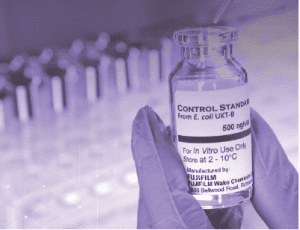Voices of Biotech
Podcast: MilliporeSigma says education vital to creating unbreakable chain for sustainability
MilliporeSigma discusses the importance of people, education, and the benefits of embracing discomfort to bolster sustainability efforts.
Sponsored by Fujifilm Wako Chemicals
 Endotoxin — also known as lipopolysaccharide (LPS) — is a large molecule made up of a lipid and a polysaccharide portion found in the outer membrane of each Gram-negative bacterial cell. Examination of endotoxins is necessary for microbial and animal cell-culture operations that produce active pharmaceutical ingredients (APIs) and vaccines. If a cell culture is contaminated with endotoxins, it could affect cell growth and function (thus potentially affecting product quality). Biopharmaceutical companies need to understand the endotoxin levels within their operations to gain more understanding of working cells.
Endotoxin — also known as lipopolysaccharide (LPS) — is a large molecule made up of a lipid and a polysaccharide portion found in the outer membrane of each Gram-negative bacterial cell. Examination of endotoxins is necessary for microbial and animal cell-culture operations that produce active pharmaceutical ingredients (APIs) and vaccines. If a cell culture is contaminated with endotoxins, it could affect cell growth and function (thus potentially affecting product quality). Biopharmaceutical companies need to understand the endotoxin levels within their operations to gain more understanding of working cells.
Important for Patients: Endotoxin is a potent pyrogen that can activate immune cells even at picomolar concentrations. The resulting release of proinflammatory cytokines into a person’s bloodstream triggers a variety of downstream immune responses, including recruitment of leukocytes and activation of the complement system. Normally, that immune response clears infections without significant collateral damage; however, in sepsis cases, a hyperactive response can damage healthy tissues throughout the patint’s body, greatly increasing the risk of mortality. Below, I discuss endotoxin monitoring and control with Lisa Komski of Fujifilm Wako Chemicals USA Corporation.
Fill out the form below to read the complete article and learn more about strategies for endotoxin monitoring and control now.
You May Also Like